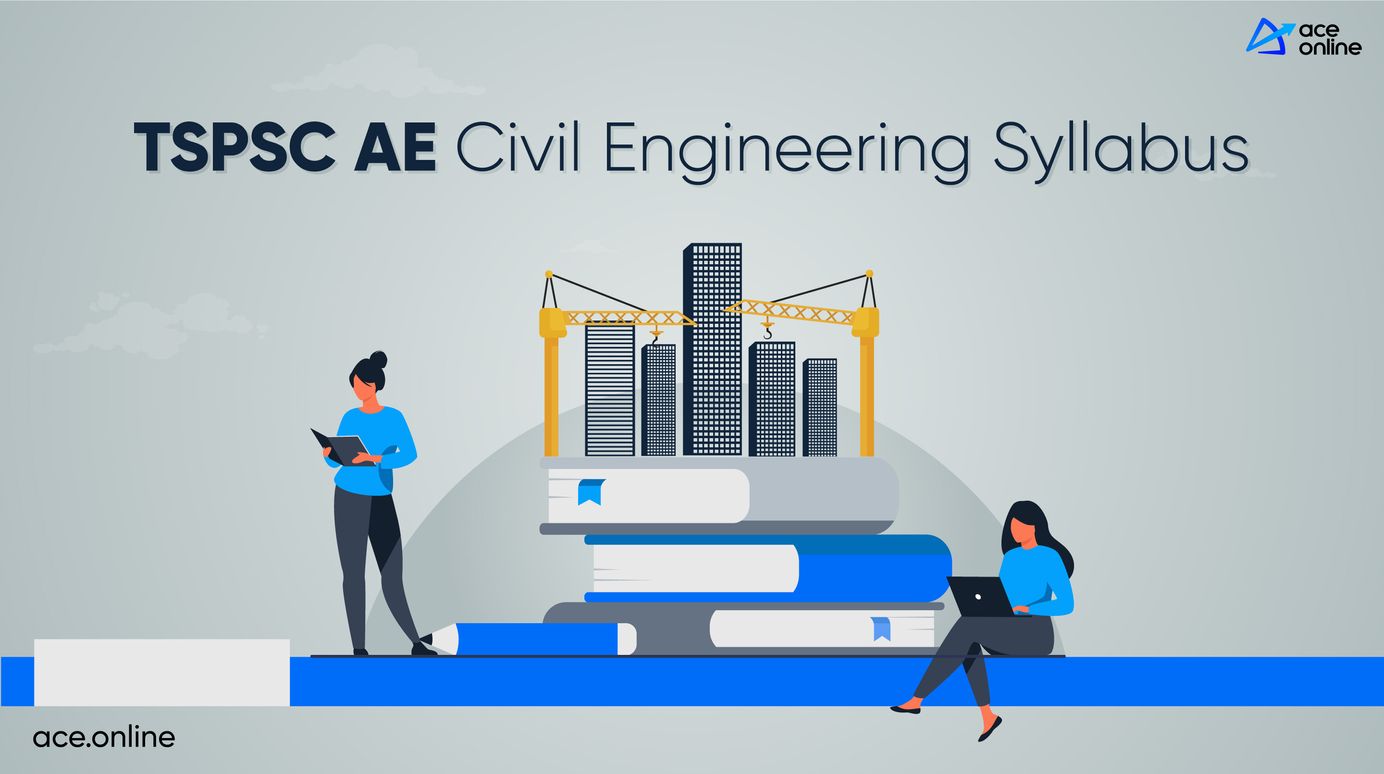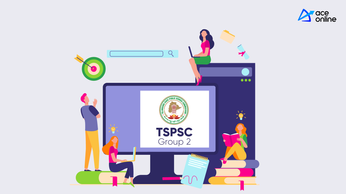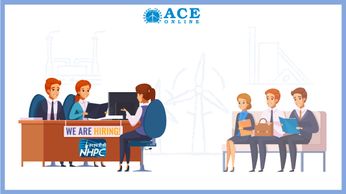
TSPSC AE Civil Engineering Exam Syllabus 2022
Telangana State Public Service Commission has released the Notification to hire 833 Assistant Engineer posts.
TSPSC Assistant Engineer Exam 2022 GS Syllabus
- Current Affairs – Regional, National, and International
- International Relations and Events.
- General Science; India’s achievements in Science and Technology
- Environmental issues and Disaster Management
- The economy of India and Telangana
- Geography of India with a focus on Telangana
- Indian Constitution and Polity with a focus on local self Government
- Society, Culture, Heritage, Arts, and Literature of Telangana
- Policies of Telangana State
- History of Modern India with a focus on the Indian National Movement
- History of Telangana with special emphasis on the Movement for Telangana Statehood
- Logical Reasoning, Analytical Ability, and Data Interpretation
- Basic English (8th Class Standard)
TSPSC Assistant Engineer Exam 2022 Civil Engineering Syllabus
- Surveying
Fundamental concepts; Classification of Surveys; Chain Surveying; Compass Surveying; Levelling and Contouring; Theodolite Surveying; Tacheometry; Curves; Introduction and fundamental concepts of electronic measuring instruments - EDM, Total Station, GIS & GPS.
2. Construction Materials & Practice
Properties and uses of construction materials - Stones, Bricks, Tiles, Sand, Cement, Timber, Plastics, Glass, Asbestos, Paints, Distempers, Enamels, and Varnishes; Preparation of Cement mortar for various works.
Classification of Buildings as per NBC, Site investigation for foundation as per NBC -Trial Pit and auger boring, classification of foundations, construction of spread footing and well foundation; Stone and Brick masonry - types and principles of construction; Doors and Windows - types, fittings and fastenings, types and functions of Lintels, Sunshades, and Roofs, Flooring - Construction and types of material; Types of Stairs; Scaffolding; Types of Plastering, Pointing, Painting and White / Colour Wash.
3. Engineering Mechanics and Strength of Materials
Forces - types of Forces, Parallelogram, Triangle, and Polygon Law of Forces, Lami’s theorem; Centre of Gravity and Moment of Inertia; Simple stresses and strains, Hooke’s law – stress-strain diagram, working strength, elastic constants, Poisson’s ratio, Relationship between elastic constants, compound rods, temperature stresses, strain energy, proof resilience, impact loading; Shear force and bending moment diagrams for simply supported, overhanging and cantilever beams, the relation between the intensity of loading, shear force and bending moment; Theory of simple bending, modulus of the section, a moment of resistance, distribution of shear stress in rectangular, circular and I-Sections; Deflection in cantilever and simply supported beams subjected to simple loading; Columns and struts - Euler’s and Rankine’s formulae, Slenderness ratio, simple built-up columns; Analysis of dams and retaining walls; Simple plane and pin-jointed trusses, Stresses by the method of joints and method of sections.
4. Hydraulics
Properties of fluids, fluid pressure, and its measurement; Types of flows, energies in fluid motion, Bernoulli’s theorem and its applications – venture meter, pitot tube; Orifice and mouthpiece; Notches and weirs; Flow through pipes, hydraulic gradient line, and total energy line, laminar and turbulent flow in pipes - Reynolds number, measurement of velocity; open channels; Water turbines – classification, centrifugal and reciprocating pumps; Layout of hydroelectric power plant
5. Quantity Surveying
Abstract estimate, detailed estimate - centreline and long & short wall method, various items of Civil Engineering works as per Indian Standards; General Specifications - earthwork, brick/stone masonry in cement mortar, RCC, plastering in cement mortar, Floor finishes with ceramic tiles and marbles, whitewashing, color washing; Standard schedule.
Know everything about TSPSC AE Exam 2022... Click Here
6. Design of Structures (RCC and Steel)
RCC structures: Design philosophies – principles and concepts of working stress method and limit state method, loads and permissible stresses, IS specifications, analysis, and design - rectangular beam, slab, T-beam, column, footing, and staircase.
Steel Structures: Properties of steel sections, loads and permissible stresses IS specifications, Analysis, and design - welded joints, beam, column, column base, tension member; Design of roof truss.
7. Irrigation Engineering
Definitions, duty, delta, base period, rainfall and its measurement, factors affecting runoff, methods of computing maximum flood discharge; Classification of head works, component parts of a weir and barrage, factors influencing the selection of site - reservoirs and dams; Classification of canals, canal lining, cross drainage works; Soil erosion, water logging, soil water plant relationship; Necessity of irrigation - advantages and disadvantages, irrigation methods.
8. Environmental Engineering
Basics of ecosystem, water supply scheme; Sources of water; Conveyance of water – pipes, joints, and laying; Testing of water, drinking water standards; Treatment of water; Distribution of water; Water supply connection to a building.
Quantity of sewage, surface drains, design of sewers running half full, limiting velocities; Laying of sewers, sewer appurtenances; Collection of sewage samples, characteristics of domestic and industrial sewage – BOD, COD; Sewage treatment, septic tank & soak pit, sewage disposal - dilution and sewage farming; House drainage arrangements in buildings; Solid waste - collection and disposal; Air Pollution - sources, effects, and control methods.
9. Transportation Engineering
Alignment of roads - plain and hilly terrain, surveys; Cross section of road structure, the width of pavement, Camber, Gradient, Super elevation, Transition curves, horizontal and vertical alignment; Pavement marking, traffic signs, traffic islands.
Types of soil, classification of soil - Textural, IS Classification, physical properties - plasticity, cohesion, consolidation, compaction, permeability, compressibility, soil moisture content, specific gravity, density; Bearing capacity of the soil.
Prepare well and set your mind free from stress because hard work alone gives you a cut to it. So, Keep your mind calm and prepare smartly with ACE Online TSPSC AE Course
For more suggestions and preparation strategies, Follow our blog. ALL THE BEST
Subscribe to our YouTube Channel for more updates https://bit.ly/3I1PDWs
For simple and smooth learning follow us on Facebook https://bit.ly/3uUG47W
Easy to learn, simple to remember. follow us on Instagram https://bit.ly/3oTntVU
Download our android app to receive updates https://bit.ly/3HY20CS
Connect with knowledge - To Download our windows app https://bit.ly/3LGyVOg
Think bigger, Learn Smarter, Download our iOS app https://apple.co/3LFzwzO
ACE Online Newsletter
Join the newsletter to receive the latest updates in your inbox.






